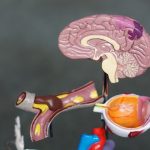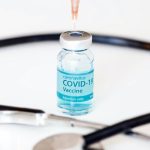Healthy habits may lower thyroid cancer risk, even in people with genetic risk
Ever worried that your family's history of health issues might catch up with you?
Well, a new study has some reassuring news: living a healthy...
Head injuries double long-term death risk, says new study
Worries about the long-term effects of head injuries have been a growing concern for years.
New research adds weight to those fears, suggesting that adults...
Even a mild head injury is linked to higher stroke risk, study finds
Head injuries are a cause for concern, often leading to hospital visits and recovery periods.
However new research is indicating that these injuries could have...
Focused ultrasound offer hope for treatments of Alzheimer’s and Parkinson’s
The Ultrasound and Elasticity Imaging Laboratory at Columbia University, led by Elisa Konofagou, Robert and Margaret Hariri Professor of Biomedical Engineering, is making strides...
Statins may lower risk of second stroke, new study finds
For many people recovering from a stroke, the fear of experiencing another one is a constant concern.
A new study suggests that taking cholesterol-lowering drugs...
Moderna’s new COVID-19 vaccine is more efficient and long-lasting
What's New About Moderna's Latest Vaccine?
Moderna has come up with a new version of its COVID-19 vaccine, known as mRNA-1283, that's even better than...
Cannabis may harm lungs more than tobacco, small study finds
The debate surrounding the health effects of cannabis compared to tobacco has gained momentum over the years.
A recent Canadian study suggests that cannabis smoking...
Healthy lifestyle halves risk of dementia in type 2 diabetes patients, study shows
A recent study presented at the annual meeting of the European Association for the Study of Diabetes (EASD) suggests that a healthy lifestyle can...
Vitamin boost helps kill cancer, study finds
Scientists from the University of Minnesota have discovered a new way to improve cancer treatment using natural killer cells—our body's built-in fighters against disease.
In...
Scientists find new causes of Parkinson’s disease and memory disorders
Parkinson's disease affects about a million people in the United States. It's a condition that slowly damages the brain, making everyday activities harder and...










